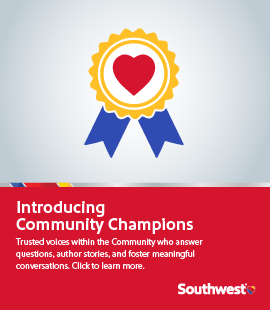World Day Against Trafficking in Persons is observed annually on July 30 to raise awareness about the crime of human trafficking, victims and survivors, and their rights. As Chief Development Officer for Polaris, a national nonprofit working to end sex and labor trafficking and help survivors reclaim their freedom, I’m excited to be part of this global effort—and to invite you to get involved.
The Fight for Freedom
Human trafficking robs at least 25 million people worldwide of the freedom to choose how they live and work. Whether forced to sell sex or to work under unlivable conditions, these people are abused for profit in a $150 billion industry. Although there is no single story of the crime, it never happens in a vacuum. When people are more vulnerable — whether from childhood trauma, poverty, prejudice, or countless other challenges — traffickers take advantage.
Over the last two years, the pandemic has exacerbated these vulnerabilities. For those trapped in situations of trafficking, COVID-19 made it even harder to leave, whether because of early lockdowns, lack of resources, or loss of safety net service providers. Among survivors who had already left situations of trafficking, many found themselves back in crisis, jeopardizing their hard-won economic growth and emotional healing.
Polaris on the Frontlines
As operator of the U.S. National Human Trafficking Hotline, Polaris has heard from thousands of victims, survivors, and their families, friends, and supporters over the last 15 years. These contacts have generated the largest data set on trafficking in North America, giving Polaris insight into how trafficking happens, what victims and survivors need, and how to work to prevent the crime from happening in the first place.
During the pandemic, both response and research have been critical to advancing the anti-trafficking movement. In addition to connecting victims and survivors with shelter, transportation, and other services, Polaris has analyzed data and shared findings, such as a surge in crisis cases during the lockdown, a shift to online recruitment for sex trafficking, and a rise in reported labor trafficking and exploitation among agricultural workers.
Even as the world starts to get a handle on living with the virus, the pandemic’s impacts persist for vulnerable populations, making it imperative that Polaris double down on supporting victims and survivors.
What Partners Make Possible
Polaris can’t do it alone. That’s why partners, including Southwest Airlines, play an invaluable role in strengthening the safety net. In 2013, Southwest became the first company to donate in-kind resources to the Trafficking Hotline, regularly providing e-passes to overcome transportation barriers for victims and survivors. Last year, Southwest also made Polaris a Points for a Purpose partner so that Rapid Rewards Ⓡ Members can donate their Rapid Rewards Points to the cause. Members can visit swa.is/pointsdonation for more information.
Thanks to these resources, Polaris has been able to help people travel to leave their traffickers, receive services, reunite with families, or even testify against their traffickers in court. In 2021, for example, we were able to fulfill our largest request to date, using donated e-passes to fly 64 survivors of one labor trafficking case home to family and friends.
And that’s not all: Polaris and Southwest have teamed up on awareness campaigns and training projects, including a human trafficking awareness curriculum for Southwest Employees. Together, with everyone doing their part, we can take even greater steps forward on the path to ending trafficking for good.
How You Can Help
You have the power to make a difference! Learn more about Polaris on our website, where you can take and share our Human Trafficking 101 training. If you’re a Rapid Rewards Ⓡ Member, you can help victims and survivors through the Points for a Purpose program. However you choose to get involved, your support will bring us closer to a world without human trafficking — a world where every human being has the dignity to choose how they live and work.
... View more
Categories:

